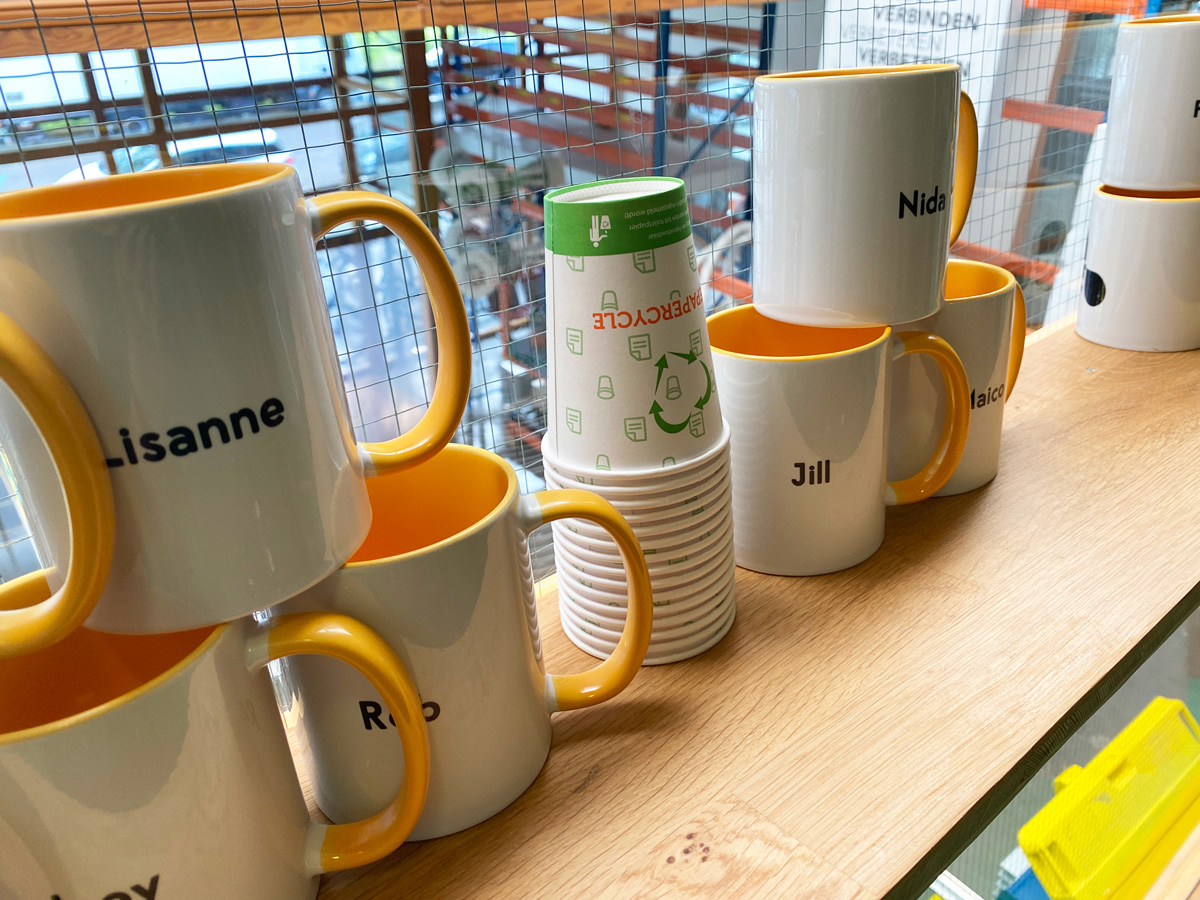Offices around the world run on coffee. It is the fuel that powers our workday and helps us complete the tasks at our desks. But with all that coffee also comes a significant amount of waste - disposable coffee cups. In this blog, we take a closer look at what the biggest challenges are associated with their abundant use in offices.
What are coffee cups?
Coffee cups come in different shapes and sizes. Usually they are made of plastic, paper or cardboard. Some paper cups are covered with a thin plastic layer to prevent leaks. They are used to serve hot beverages such as coffee and tea. These cups are designed for single use and are usually discarded after use.
How are coffee cups processed?
Processing coffee cups is a complex process that depends on the materials from which the cups are made. In the case of plastic-coated cups, they must be separated from paper or cardboard before they can be recycled. This process is time-consuming and labor-intensive, and it is often cheaper to send the cups to the landfill instead of recycling them.
For cups that do get recycled, they must first be collected and taken to a recycling facility. There they are ground up and separated into their various components. The paper or cardboard can be recycled into new paper product, while the plastic is usually used to produce other plastic materials.

The biggest challenges of coffee cups
- Convenience: Convenience plays a crucial role in people's behavior. The use of disposable coffee cups is often the result of convenience. They are readily available, require no cleaning and can simply be thrown away after use. Offering reusable cups in the office can sometimes be considered less convenient, as they require regular cleaning and take-out. If convenience is lacking, it may be difficult to motivate employees to switch to reusable cups.
- Adapting office culture: Office culture and social norms play a big role in the use of coffee cups. If using disposable cups is the norm and reusable cups are not encouraged or supported, it can be difficult to encourage employees to change their behavior. A culture of sustainability must be created where reusable cups are valued and encouraged as the default choice.
- Lack of dedicated collection containers: A major challenge is the lack of specialized collection bins for disposable coffee cups in the office. Not all companies have the proper facilities to efficiently collect these cups. This limits the ability to separate disposable cups on a large scale and increases the likelihood that they will end up at the residual waste bin.
Tips or ideas?
Do you have any tips or ideas for preventing waste streams? Let us know! We would like to hear what you are doing to reduce food waste or avoid packaging waste, for example. We will include your suggestions in our next blogs, in which we discuss solutions for various waste streams.










